On Monday, April 10, PNWU hosted the 2023 Research Symposium. Nearly 200 people attended the annual campus community event, which showcased 41 research projects reflecting the efforts and passions of students, faculty and staff from all of PNWU’s health sciences programs.
“The Research Symposium is a great opportunity to see how PNWU is engaging in improving health through research,” explained Lizzie Lamb, PNWU research development facilitator. “It’s also a great chance to see what our faculty and student researchers are engaged in.”
This year’s Symposium featured empirical and original research, literature reviews, case reports, and quality improvement projects, with vast topics covering everything from breast cancer gene pathways, unique focuses on PNWU mission fulfillment, primate mastication, the experiences of women in STEM, and more.
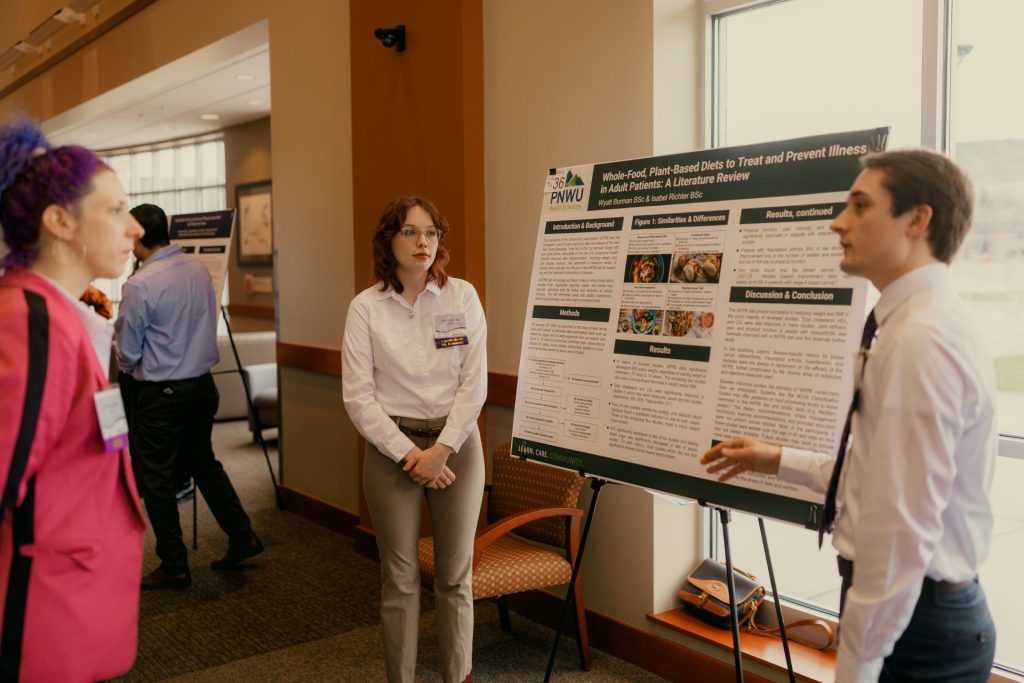


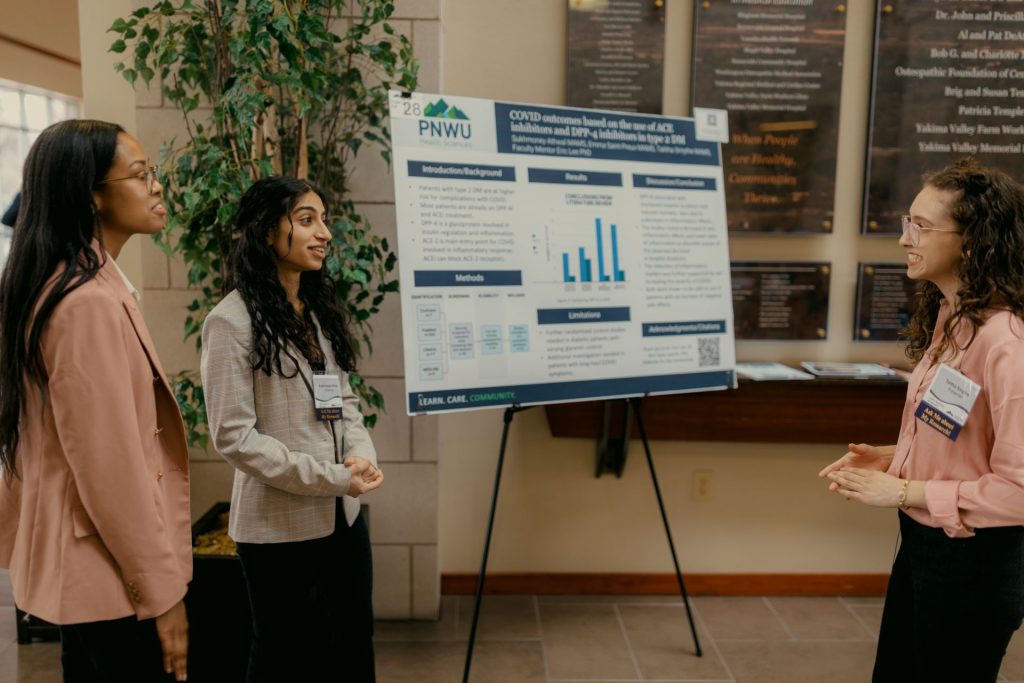
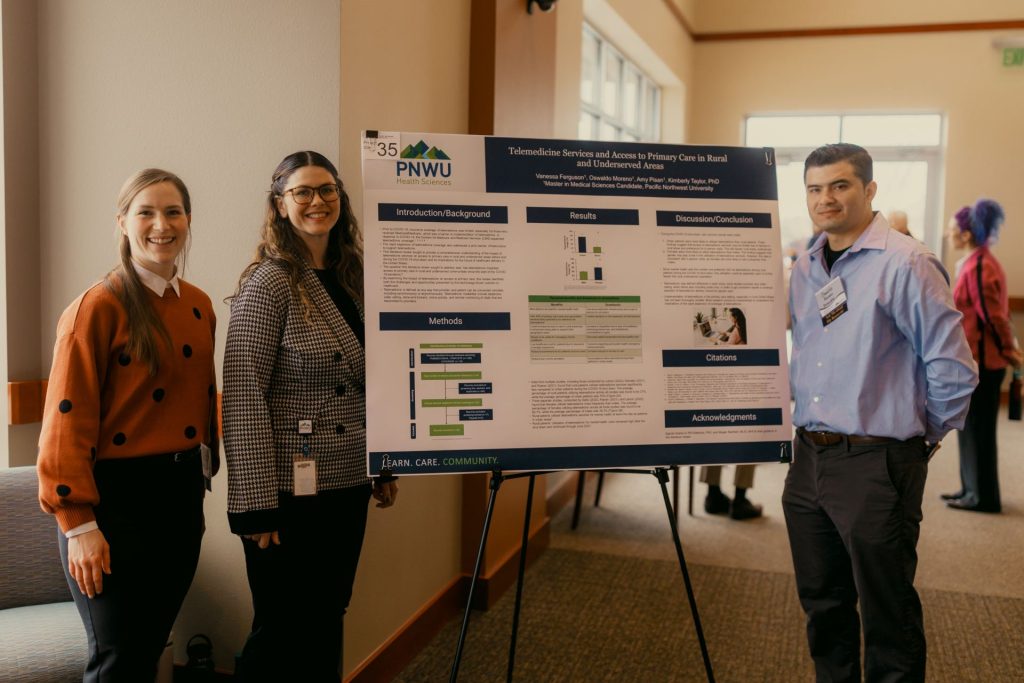
While opportunities for faculty research had been limited in recent years due to COVID-related challenges, this year’s Symposium featured more empirical research projects than ever before.
“This indicates that our faculty are developing new projects, creating research opportunities for students, and perhaps suggests we are finally coming out of the COVID crunch!” Lamb exclaimed.
To participate, Symposium presenters were required to submit abstracts for the consideration of three judges. Once accepted, they developed three-by-four-foot scientific posters to display the details of their projects. Those posters will remain up around campus for the next year.
Student Doctors Tyler Lulich, Ericka Von Hoy, Kristen Senior and Estevan Yepez – all second-year students in PNWU’s College of Osteopathic Medicine (OMS IIs) – alongside their mentor, Dr. Ronald Walser, won the Best Case Report Award and a prize of $400 for their poster, “Aberrant Right Subclavian Artery Presentation in a Cadaver.” Their award-winning research represents an interesting anatomical variation that the students discovered during lab.
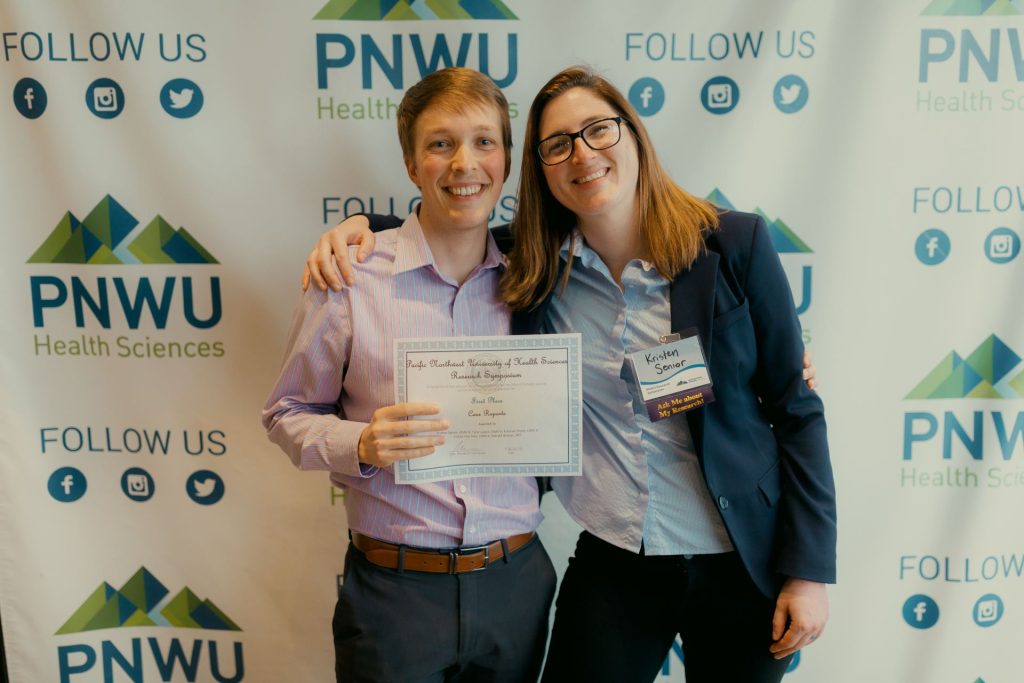
“I really enjoyed working with my whole team on this project,” explained Student Doctor Lulich. “We were able to put research into it, which really helped us synthesize and apply the information we learned in class.”
“It was fun to see students presenting their work in such a professional way,” said Caitlin Young, PNWU’s fellowship program coordinator. “Multiple students stated that seeing each other’s work was really exciting, and everyone was impressed at the phenomenal quality of the posters being presented, and the ingenuity of students and mentors.”
Pearl Dykstra, OMS II, presented a poster titled, “Do Older Adults Who Engage in Physical Activity have Better Cognitive Assessment Scores?” For her project, which was also under the mentorship of Dr. Walser, Student Doctor Dykstra reviewed articles studying cognitive assessment scores and mobility, concluding that older adults who engage in regular physical activity may be able to maintain better cognitive function.
“I was so excited about my presentation,” said Student Doctor Dykstra. “I really enjoyed the great questions people asked about my research.”
Student Doctor Steve Sorensen, PT (OMS III), agreed wholeheartedly with that feedback.
Presenting a case report for the second year in a row, Student Doctor Sorensen felt energized by the opportunity to share his work in-person, as the event returned to an in-person format for the first time since 2019. “I really enjoyed the interaction with faculty and getting to answer questions in real-time,” said Student Doctor Sorensen. “The interactions were much more dynamic and led to great academic discussions.”
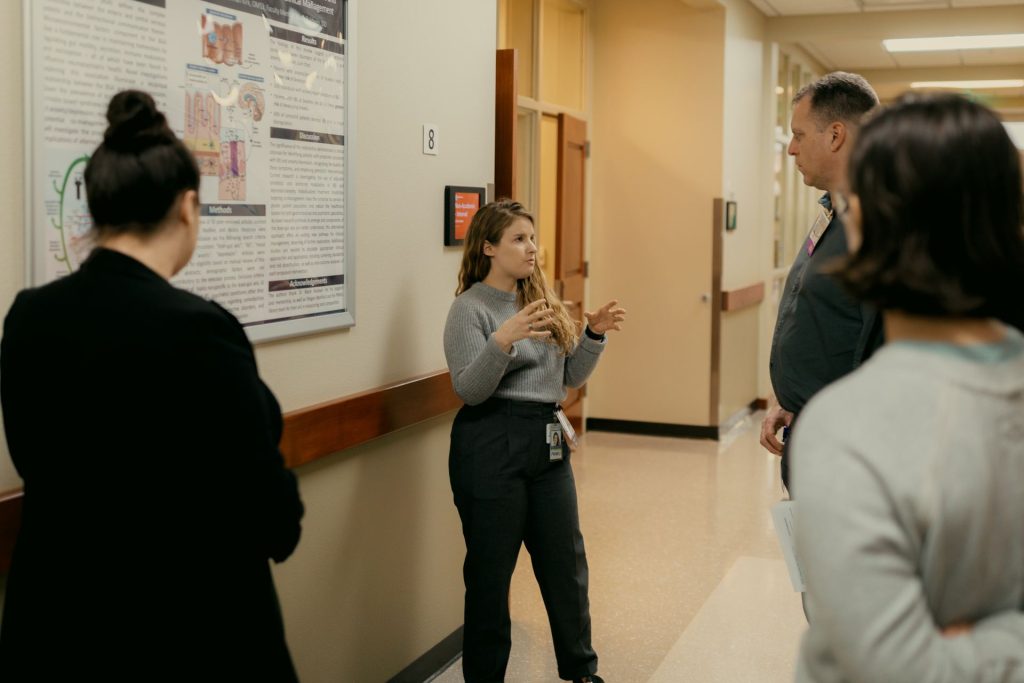
Washington State University’s Patrick Johansson, MD, MPH, served as the events keynote speaker. An Associate Professor in the Elson S. Floyd College of Medicine at WSU, Dr. Johansson’s research focuses on chronic disease prevention and management in rural and Indigenous populations. During his keynote, Dr. Johansson discussed his experiences developing research projects in collaboration with American Indian tribes in Maine, and the complexities of developing ethical research projects and collaborative relationships with groups who have historically being marginalized via research.
“I’m really excited about the quality of the projects and breadth of subject areas we were able to feature this year,” said Lamb. “It was wonderful to see so much activity.”
